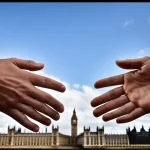Overview of the UK’s Involvement in International Peacekeeping
The UK role in peacekeeping has been both longstanding and multifaceted, reflecting a sustained commitment to stabilising conflict zones worldwide. The UK’s involvement in international peacekeeping missions demonstrates clear objectives: to promote global security, protect vulnerable populations, and uphold international law. These goals are pursued through a combination of military deployment and diplomatic engagement, ensuring that peacekeeping efforts are comprehensive and effective.
At the core of the UK’s strategy is the interplay between its military forces, particularly the British Army and Royal Navy, and specialist agencies. The UK Ministry of Defence collaborates closely with the Foreign, Commonwealth & Development Office, creating a coordinated approach to peacekeeping. In addition, units such as the Royal Military Police and specialised technical teams contribute vital expertise in areas like logistics, communications, and training.
Topic to read : How Can Recent UK Developments Affect International Relations?
This UK peacekeeping overview illustrates a balanced commitment that blends frontline troop deployment with vital support roles. The UK’s participation is not only about providing soldiers but also about shaping peacekeeping policies and fostering international cooperation through multilateral organisations. Their comprehensive engagement underscores the nation’s strategic vision of peace and security as global imperatives worth consistent support.
Key UK Contributions to UN and Multinational Peacekeeping Missions
The UK contributions to UN peacekeeping are both substantial and diverse, reflecting the nation’s commitment to stabilising troubled regions through various forms of involvement. For example, in Cyprus, the UK has played a pivotal role in maintaining peace since the establishment of a UN buffer zone, providing troops who monitor ceasefire lines and facilitate dialogue. Similarly, in Mali, British forces contribute to multinational operations focusing on counter-terrorism and training local armed forces, helping to strengthen regional stability.
Additional reading : What Are the Future Prospects for the UK Post-Brexit?
In South Sudan, the UK’s participation exemplifies its integrated approach, deploying troops alongside police units and offering critical technical support. Such support includes intelligence sharing, logistics, and communication capabilities, enhancing mission effectiveness. These varied roles underscore the UK’s adaptability in peacekeeping, addressing the complex demands of different conflict environments.
Beyond operational deployment, the UK often assumes leadership and coordination positions within missions. This leadership role includes organizing multinational forces, strategizing mission objectives, and liaising with international partners. By steering cooperative efforts, the UK ensures that peacekeeping missions operate with coherence and efficiency, magnifying the impact of its contributions.
Together, these examples highlight the UK’s multinational peace missions involvement, where it combines military prowess, policing expertise, and technical capabilities. This comprehensive engagement strengthens both the missions and the broader peacekeeping architecture supported by the United Nations and allied coalitions.
Scale of Involvement: Troops, Funding, and Training
The UK peacekeeping troop numbers have consistently represented a vital component of the country’s commitment to international security. Recent figures indicate that the UK deploys several hundred personnel across various UN and multinational missions at any given time. These troops perform diverse roles, from frontline peacekeeping duties to specialized support functions such as intelligence, logistics, and engineering. This deployment reflects a deliberate strategy to maintain a capable and flexible presence in global peace operations.
Financially, the UK peacekeeping funding contributes significantly to both UN missions and regional coalitions. The UK allocates tens of millions of pounds annually, ensuring that operations are well-resourced to tackle complex challenges. These funds cover costs ranging from troop deployment and equipment to training programmes and mission administration. The financial commitment underlines the UK’s recognition that peacekeeping effectiveness depends not only on manpower but also on sustained, robust funding.
An essential aspect of the UK’s approach is its proactive role in UK peacekeeping training initiatives. The UK hosts and supports training programmes designed to enhance the capabilities of peacekeepers from around the world. These initiatives focus on operational readiness, minimizing civilian harm, and improving coordination among international forces. The training also emphasizes adapting to evolving conflict environments, preparing personnel for challenges such as asymmetric warfare and peacebuilding tasks. Through such capacity-building, the UK ensures that its peacekeeping forces and their allies operate with professionalism and resilience.
UK Government Policies and Strategic Approach
The UK peacekeeping policy reflects a clear governmental commitment to supporting international peace and security through carefully planned interventions. This policy prioritises sustainable peacebuilding, civilian protection, and multilateral cooperation, aligning with broader UK defence policy objectives. The UK consistently seeks to balance national interests with global responsibilities, ensuring that peacekeeping missions contribute meaningfully to stability and conflict resolution.
Over time, the UK peacekeeping strategy has evolved in response to shifting geopolitical dynamics and emerging threats. For example, the rise of asymmetric warfare and terrorism has driven a greater emphasis on intelligence-sharing, training local forces, and enhancing rapid deployment capabilities. The UK government has also adjusted its approach to focus more on regional partnerships and capacity-building, recognising that lasting peace requires empowering host nations.
Strategic priorities guide mission selection and resource allocation. The UK targets deployments where its military and technical expertise can have maximum impact, often in coordination with the United Nations and NATO. Within this framework, decisions on troop numbers, funding levels, and support services are made to optimise operational effectiveness while adhering to fiscal constraints. This integration of policy and strategy ensures that the UK’s peacekeeping efforts remain relevant, efficient, and responsive to global peace challenges.
Historical Context of the UK’s Peacekeeping Efforts
The history of UK peacekeeping traces back to the aftermath of World War II when the United Kingdom began contributing forces to early multinational efforts aimed at maintaining fragile ceasefires and stabilising conflict zones. This period marked the transition from traditional warfare to a more complex role involving peacemaking and peace enforcement under emerging international frameworks such as the United Nations. The UK’s historical involvement in peacekeeping laid the groundwork for its contemporary engagement in global security.
Among the notable historical missions, the UK played a key role in the Suez Crisis of 1956, the Cyprus Peacekeeping Force established in the 1960s, and later peace operations in the Balkans during the 1990s. These missions taught valuable lessons in balancing military intervention with diplomatic negotiation. Specifically, the Cyprus mission typifies the UK’s long-term commitment, maintaining a stabilising presence for decades which evidences the depth of its peacekeeping legacy.
Over time, the UK’s peacekeeping role evolved significantly. Early operations focused primarily on monitoring ceasefires and maintaining order, while more recent engagements encompass complex peacebuilding, counter-terrorism support, and capacity-building activities. This evolution reflects adapting strategies to new conflict types and geopolitical realities, positioning the UK as a modern and versatile peacekeeping actor with a rich UK peacekeeping legacy.




